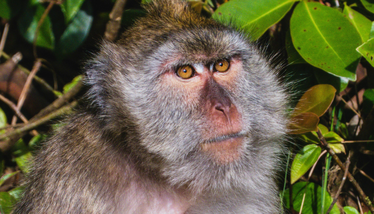Of Mice and Monkeys
The contribution of macaques to advancing human understanding of flu-like viruses, including H5N1, cannot be overstated.
Research led by Oregon Health & Science University (OHSU), published in Nature Communications, has explored the potential of a single, universal influenza vaccine, thanks largely to the insights provided by a hero of biomedical research: the Mauritian cynomolgus macaque.

Credit: Pexels.com
Each generation faces a deadly influenza pandemic, and the reasons why a universal vaccine has not yet been developed remain unknown. A vaccine that solves the viral sequence diversity and durable protection problems could open the door to a pandemic-free generation. With the aim of generating one, OHSU researchers immunized Mauritian cynomolgus macaques with cynomolgus vaccines expressing H1N1 to challenge avian H5N1 influenza. Six went unvaccinated, all dying within a week with acute respiratory distress. Of the 11 vaccinated, six macaques survived.
What the researchers learned from this process is that survival correlates with the magnitude of the resident, influenza-specific CD4 + T cells that protect against highly pathogenic heterologous influenza. They are now inspired to explore further in the field of effector memory T cell-based vaccines as the search for a universal influenza vaccine goes on. However, biomedical research carries the onus of understanding and combating infectious diseases through the availability of reliable animal models. From murine to bovine, these animals have generated significant data, insights, and breakthroughs in understanding and curing disease. Perhaps none moreso, than the Mauritian cynomolgus macaque
Mauritian cynomolgus macaques possess a more uniform genetic makeup than their Southeast Asian cousins. This homogeneity significantly enhances their value in research, reducing experimental variability and providing more consistent results. Such uniformity is particularly advantageous in infectious disease research.
H5N1 is considered one of the most concerning strands of influenza, with a significant pandemic potential. While primarily affecting birds, H5N1 has shown the capacity to infect humans, notwithstanding its capacity to infect other species. Symptoms include severe respiratory issues and unusually high mortality rates for a flu-like virus – a major concern for world health authorities. In the study of H5N1, USOH scientists once again turned to the small primate as a critical model for understanding the pathogenesis of the virus, as well as the immune response it elicits. Their physiological and immunological responses closely resemble those of humans, making them an invaluable proxy in preclinical studies.
The Medicine Maker Presents:
Enjoying yourself? There's plenty more where that came from! Our weekly Newsletter brings you the most popular stories as they unfold, chosen by our fantastic Editorial team!
Macaques can also teach us more about H5N1 infection and proliferation, offering insights into promising treatment strategies, viral evasion of immune defenses, and candidates for therapeutic intervention.
As learned during COVID-19, the ability to rapidly develop and deploy effective vaccines and treatments is crucial in potential pandemic “bud-nipping” strategies. The research done with Mauritian cynomolgus macaques goes beyond the academic and into the proactive. This little monkey, a plucky cousin, is in the vanguard. As we continue to face the latest iteration of little-known infectious diseases, the role of these macaques in biomedical research will remain critical. It is through such diligent and forward-thinking research that we can hope to stay one step ahead of potential pandemics, safeguarding global health for future generations.
Image credit: Jianrong Wu
Following a Bachelor’s degree in English Literature and a Master’s in Creative Writing, I entered the world of publishing as a proofreader, working my way up to editor. The career so far has taken me to some amazing places, and I’m excited to see where I can go with Texere and The Medicine Maker.



















